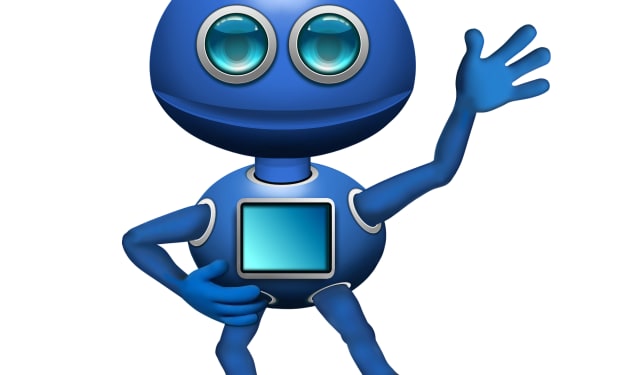
"How Artificial Intelligence is Revolutionizing Healthcare"
Artificial Intelligence, or AI, is making waves in various industries, and healthcare is no exception. From improving diagnosis to streamlining operations, AI is transforming the way we approach healthcare, making it more effective and efficient. In this blog post, we'll explore how AI is revolutionizing healthcare and the impact it's having on patient outcomes.
The Benefits of AI in Healthcare
- Improved Diagnosis: AI can be used to analyze medical images, such as X-rays and MRIs, to help doctors diagnose diseases and make more informed treatment decisions. AI can also analyze large amounts of medical data to identify patterns and predict potential health risks.
- Personalized Medicine: AI can help develop personalized treatment plans based on a patient's individual medical history, genetics, and lifestyle. This allows for more tailored and effective treatment, improving patient outcomes.
- Streamlined Operations: AI can automate routine tasks in hospitals and clinics, freeing healthcare professionals to focus on more critical tasks and improve patient care. This includes scheduling appointments, handling medical records, and even performing surgeries.
- Early Detection of Diseases: AI can analyze large amounts of data to identify early warning signs of diseases, allowing for earlier treatment and improved outcomes.
- Improved Drug Development: AI can help speed up the drug development process by analyzing large amounts of data and identifying potential drug candidates faster and more accurately.
The Challenges of AI in Healthcare
- While AI has the potential to greatly improve healthcare, there are also important challenges to consider.
- Bias and Discrimination: AI systems can perpetuate biases and discrimination in healthcare, leading to unequal treatment and outcomes for certain patient populations.
- Privacy and Security: The handling of medical data is highly sensitive, and it's crucial to ensure that AI systems are secure and protect patient privacy.
- Integration with Traditional Healthcare: AI systems must be integrated with traditional healthcare processes and systems, which can be challenging and time-consuming.
- Responsibility and Accountability: As AI becomes increasingly integrated into healthcare, it's important to consider who is responsible and accountable for decisions made by AI systems.
More Explanation
AI in healthcare refers to the use of artificial intelligence technologies and algorithms in the healthcare industry to improve patient outcomes, streamline operations, and increase efficiency. This can include analyzing medical images to assist in diagnosis, developing personalized treatment plans, automating routine tasks, early detection of diseases, and speeding up the drug development process.
One of the key benefits of AI in healthcare is improved diagnosis. By analyzing medical images, such as X-rays and MRIs, AI can help doctors make more informed treatment decisions. AI can also analyze large amounts of medical data to identify patterns and predict potential health risks.
Another benefit of AI in healthcare is personalized medicine. By considering a patient's individual medical history, genetics, and lifestyle, AI can help develop personalized treatment plans that are more tailored and effective. This leads to improved patient outcomes.
AI can also streamline operations in hospitals and clinics by automating routine tasks, freeing up healthcare professionals to focus on more critical tasks and improve patient care. This can include scheduling appointments, handling medical records, and even performing surgeries.
Early detection of diseases is another benefit of AI in healthcare. By analyzing large amounts of data, AI can identify early warning signs of diseases, allowing for earlier treatment and improved outcomes.
However, there are also important challenges to consider when it comes to AI in healthcare. These include potential biases and discrimination, privacy and security concerns, integration with traditional healthcare processes and systems, and responsibility and accountability for decisions made by AI systems. Society must consider these challenges as we continue to develop and integrate AI into healthcare.
In conclusion, AI is transforming the healthcare industry and has the potential to greatly improve patient outcomes. From improved diagnosis to personalized medicine, AI is revolutionizing the way we approach healthcare. But with its benefits come important challenges, such as bias and discrimination, privacy and security, and responsibility and accountability. Society must consider these challenges as we continue to develop and integrate AI into healthcare, ensuring that it's used for the greater good and improving patient outcomes for generations to come.






Comments
There are no comments for this story
Be the first to respond and start the conversation.